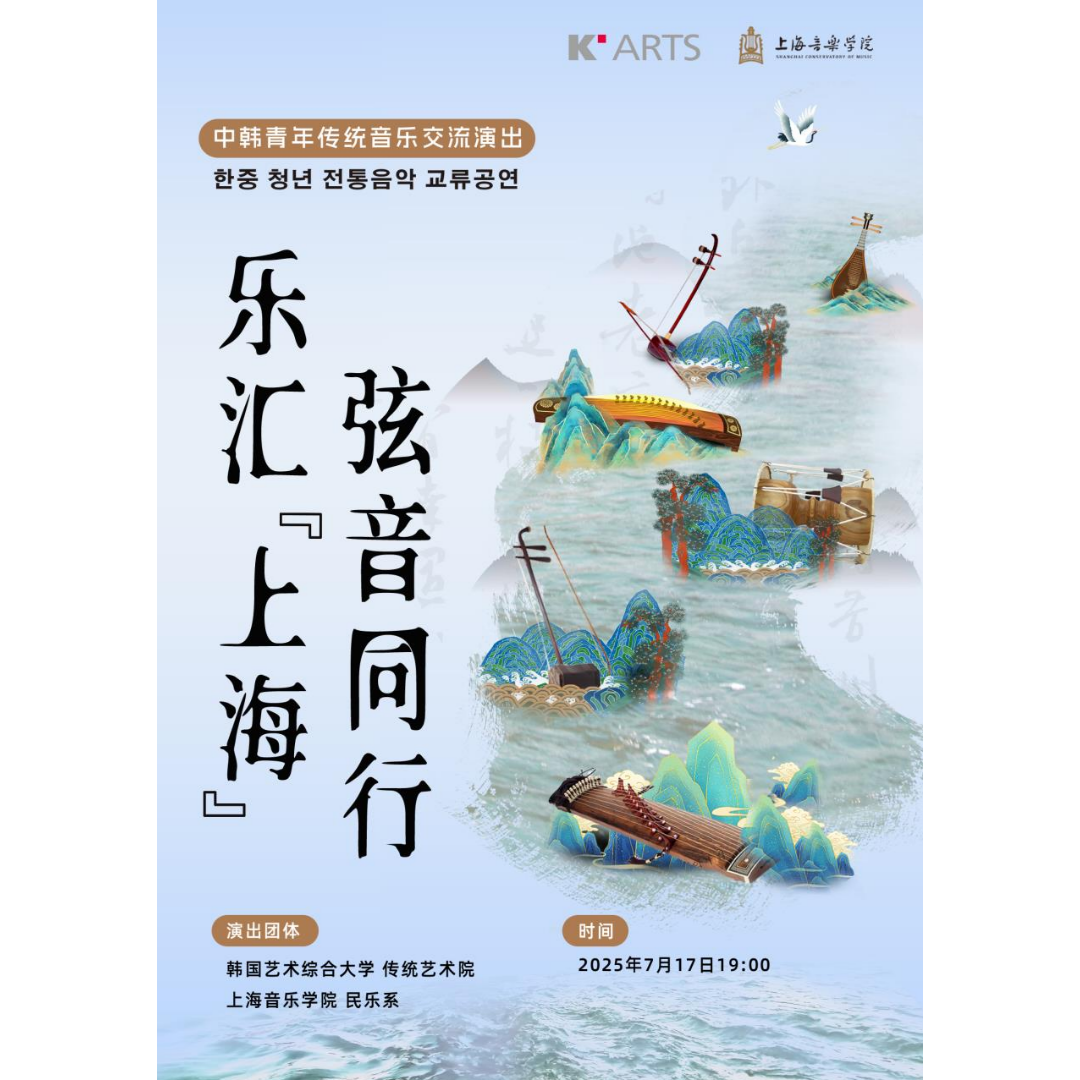
School
of Korean Traditional Arts Successfully Concludes South Korea-China Youth
Traditional Music Exchange Concert
The School of
Korean Traditional Arts (dean Sung Kisook) participated in the South Korea-China
Youth Traditional Music Exchange Concert, “Harmony and Companionship through
Music” (Chinese title: ‘弦音同行’ xian yin tong hang),
hosted by the Korean Cultural Center in Shanghai (director Kang Yongmin) on
Thursday, July 17.
On one level, this
concert served as an exchange between students of the School of Korean
Traditional Arts of K-Arts and the Shanghai Conservatory of Music (president
Liao Changyong). On a deeper level, it acted as an exercise in cultural
diplomacy, encouraging the next generation of artists to collaborate and understand
one another while transcending borders and language barriers.
The School of
Korean Traditional Arts, founded in 1998, aims to foster professionals who not
only academically explore traditional arts—centered on music, song, and dance—but
also amplify their performance skills to meet the demands of the changing era.
The Korean Cultural Center in Shanghai, founded in 2007 by the Ministry of
Culture and Sports (antecedent of the Ministry of Culture, Sports and Tourism)
in South Korea, is dedicated to expanding cultural exchange between South Korea
and China. The Shanghai Conservatory of Music (SHCM), originally the National
Conservatory of Music established in 1927, is China’s first independent
national music institution of higher education.
The title “xian
yin tong hang” literally means “Let’s come together and harmonize through music.”True
to its name, students from K-Arts and SHCM connected through their shared
passion for traditional music. The School of Korean Traditional Arts presented
a range of performances, including “Han Gap-deuk School of Geomungo Sanjo” by Professor
Yoo Youngju, the wind ensemble “Hamnyeongjigok (melody of complete serenity)” by
current K-Arts students, the piri solo “Sangryeongsan (prayer to the Buddha on
the spiritual mountain)” by Professor Jin Yoonkyung, and the wind ensemble “Sinawi”
delivered by current and grduate students.
The final joint
performance – featuring “Arirang,” a representative Korean traditional song, and
“Zi Zhu Diao (Purple Bamboo Melody),” a beloved Chinese folk tune from southern
China was the highlight of the day, uniting audiences of both nations through the
universal language of music.
Dean Sung Kisook remarked, “This event has laid the groundwork for ongoing collaboration between traditional music institutions from South Korea and China. It has also provided a valuable opportunity for students to meet in person, gain a deeper understanding of each other’s cultures, and connect through traditional music. The School of Korean Traditional Arts will continue to promote diversity and cultural coexistence throughout Asia. Lastly, I extend my sincere gratitude to everyone at the KCC Shanghai who supported this event.”